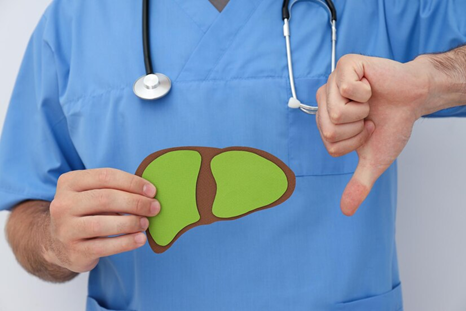Autoimmune liver disease is a complex and often misunderstood condition that arises when the body’s immune system mistakenly attacks its own liver cells. This category of diseases primarily includes autoimmune hepatitis (AIH), primary biliary cholangitis (PBC), and primary sclerosing cholangitis (PSC). These conditions, although rare, can lead to severe liver damage if left untreated.
What is Autoimmune Liver Disease?
Autoimmune liver disease encompasses a group of conditions characterized by immune-mediated inflammation of the liver. Unlike other liver conditions caused by infections like hepatitis B or C, or lifestyle factors such as alcohol abuse, autoimmune liver diseases occur due to an overactive immune system targeting healthy liver tissues.
The three primary types of autoimmune liver disease include:
- Autoimmune Hepatitis (AIH): A condition where the immune system directly attacks liver cells, leading to chronic inflammation and potential cirrhosis.
- Primary Biliary Cholangitis (PBC): A progressive autoimmune disease targeting the bile ducts, resulting in bile accumulation and liver scarring.
- Primary Sclerosing Cholangitis (PSC): A rare disease-causing inflammation and scarring of the bile ducts, which can eventually lead to bile duct strictures and liver failure.
Symptoms of Autoimmune Liver Disease
Early diagnosis of autoimmune liver disease can be challenging as symptoms often overlap with other conditions. However, recognizing the signs is crucial for timely intervention. Common symptoms include:
- Fatigue: Persistent tiredness is often one of the earliest symptoms.
- Jaundice: Yellowing of the skin and eyes due to elevated bilirubin levels.
- Itching (Pruritus): Common in PBC and PSC, caused by bile salt accumulation.
- Abdominal Pain: Discomfort in the upper right quadrant of the abdomen.
- Dark Urine and Pale Stools: Indicators of impaired bile flow.
- Joint Pain: Frequently seen in autoimmune hepatitis.
- Unexplained Weight Loss: A possible sign of liver dysfunction.
In advanced cases, complications such as cirrhosis, portal hypertension, and liver failure may develop.
Causes and Risk Factors
The exact cause of autoimmune liver disease remains unclear. However, a combination of genetic, environmental, and hormonal factors is believed to contribute to its onset.
Key risk factors include:
- Genetics: A family history of autoimmune diseases increases susceptibility.
- Gender: Women are disproportionately affected, especially in PBC and AIH.
- Environmental Triggers: Infections, medications, and toxins may act as triggers in genetically predisposed individuals.
- Other Autoimmune Disorders: Conditions like rheumatoid arthritis, type 1 diabetes, or thyroiditis may coexist with autoimmune liver disease.
Diagnosis of Autoimmune Liver Disease
Accurate diagnosis involves a combination of clinical evaluation, laboratory tests, and imaging studies. Steps to diagnose autoimmune liver disease typically include:
- Blood Tests: These include liver function tests (LFTs), autoantibody panels (ANA, ASMA, and AMA), and immunoglobulin levels.
- Liver Biopsy: A small sample of liver tissue is examined to confirm inflammation and scarring.
- Imaging Studies: Ultrasound, MRI, or MRCP may be used to assess bile duct abnormalities in PBC or PSC.
Treatment Options
While autoimmune liver disease cannot be cured, effective management can control symptoms, reduce inflammation, and prevent complications. Treatment approaches vary based on the specific condition:
For Autoimmune Hepatitis:
- Immunosuppressive Therapy
- Liver Transplant
For Primary Biliary Cholangitis:
- Medications to improve bile flow and slows disease progression.
For Primary Sclerosing Cholangitis:
- Endoscopic Procedures: To manage bile duct strictures.
- Transplantation: The only definitive treatment for advanced PSC.
Lifestyle and Management Tips
Living with autoimmune liver disease requires adjustments to daily life. Here are some practical tips:
- Adopt a Liver-Friendly Diet: Focus on low-fat, nutrient-rich foods and limit processed items.
- Avoid Alcohol: Alcohol can exacerbate liver damage.
- Regular Monitoring: Frequent check-ups and blood tests are vital for tracking disease progression.
- Stress Management: Practices like yoga and meditation can help manage stress, which may worsen autoimmune conditions.
- Vaccinations: Stay updated on vaccines, especially for hepatitis A and B.
Autoimmune liver disease is a serious but manageable condition with the right medical intervention and lifestyle adjustments. Early detection, accurate diagnosis, and tailored treatments can significantly improve quality of life and prevent severe complications. If you or a loved one is seeking specialized care for autoimmune liver disease, consider visiting Gastrocare Clinic. With expert doctors and state-of-the-art facilities, Gastrocare Clinics are dedicated to providing top-notch care for all your liver health needs.

